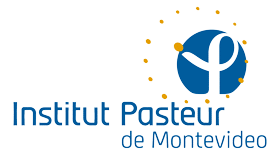Services of the Cell Biology Unit
Culture, amplification and storage of different cell lines.
Detection of Mycoplasma sp contamination in cell cultures using PCR technique
The DNA present in the culture supernatant samples is isolated by centrifugation. Aliquots of this extraction are used as template in a PCR reaction with a mixture of primers that allow the amplification of a conserved 16S rDNA sequence present in the vast majority of mycoplasma species listed so far in sequence databases. The result is revealed by agarose gel stained with DNA intercalant. As an internal control, another fragment is co-amplified to verify sensitivity and absence of Taq polymerase inhibitors. Samples are received during working days of the week until 17:00 hours. The results are delivered within 10 days. The report with the result is sent by e-mail or in printed version if necessary.
Cell-based assays: cytotoxicity, proliferation, transfection
We perform cell-based assays tailored to customer needs. These include cytotoxicity, proliferation, transfection, etc. assays. We have a wide collection of cell cultures from different origins to be used according to the model of interest.
Access to conventional flow cytometers, continuous spectrum flow cytometers and cell sorters
Assistance in experimental design, sample processing, data acquisition and analysis
Isolation of different cell populations (up to 4 lanes) from a mixture by high-speed cell separation
Cell cloning by deposition of a single cell per well using a cell sorter
Quantification of cytokines in serum, plasma and cell culture supernatants, among others.
Training and counseling for cytometry users
Cell sorter: isolation of one or more cells (10,100,5,000,10,000, etc) in different devices: 6, 12, 48, 96 or 384-well plates, in 15 ml falcon or 5 ml tubes or directly to slides.
Analytical cytometers: 2 with autosampler are available. They accept 48 and 96 well format (standard and deep well). Also 1.5, 2 and 5 mL tubes.
Determination of hematological parameters of animal species with the Mindray BC5000Vet automatic equipment. 23 parameters are measured, including: white blood cells, lymphocytes, monocytes, neutrophils, basophils, eosinophils, red blood cells, Hb, hematocrit and platelets.
This equipment allows the analysis of hematological parameters of 13 animal species: mouse, rat, dog, cat, monkey, horse, rabbit, pig, cow, sheep, llama, goat, ferret.
Using flow cytometry and electrical impedance, it allows the measurement of up to 23 parameters: white blood cells, lymphocytes, monocytes, neutrophils, basophils, eosinophils, red blood cells, Hb, hematocrit, platelets among others (MCV, MCH, MCHC, RDW-CV, RDW-SD, MPV, PDW, PCT).
The minimum sample volume is 15 µL of anticoagulated whole blood.
Anticoagulants accepted by the kit: EDTA-K3 or EDTA-K2.
